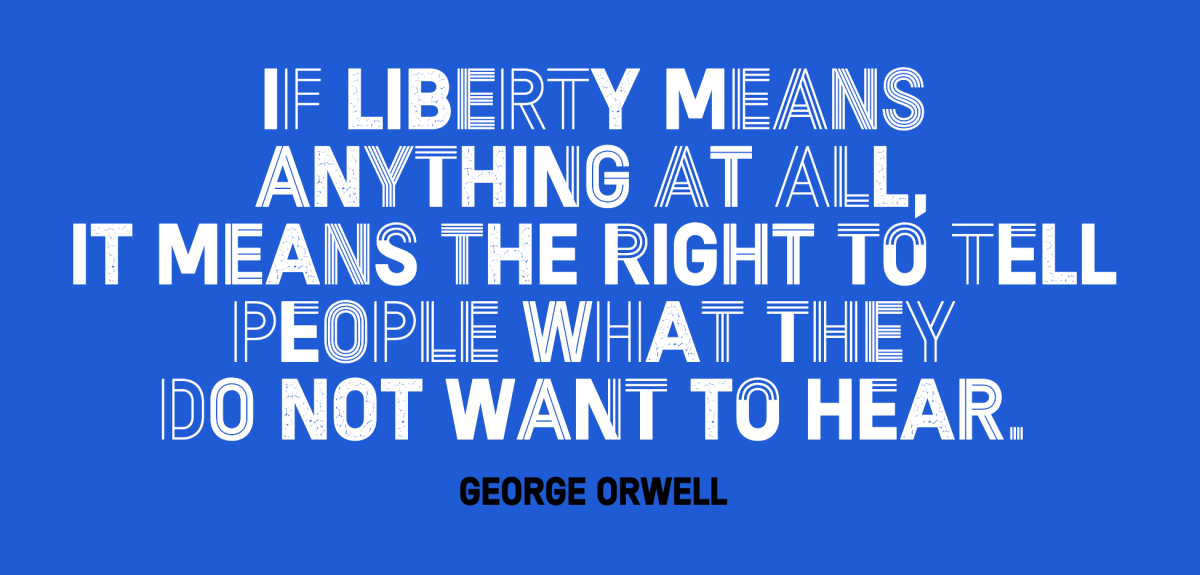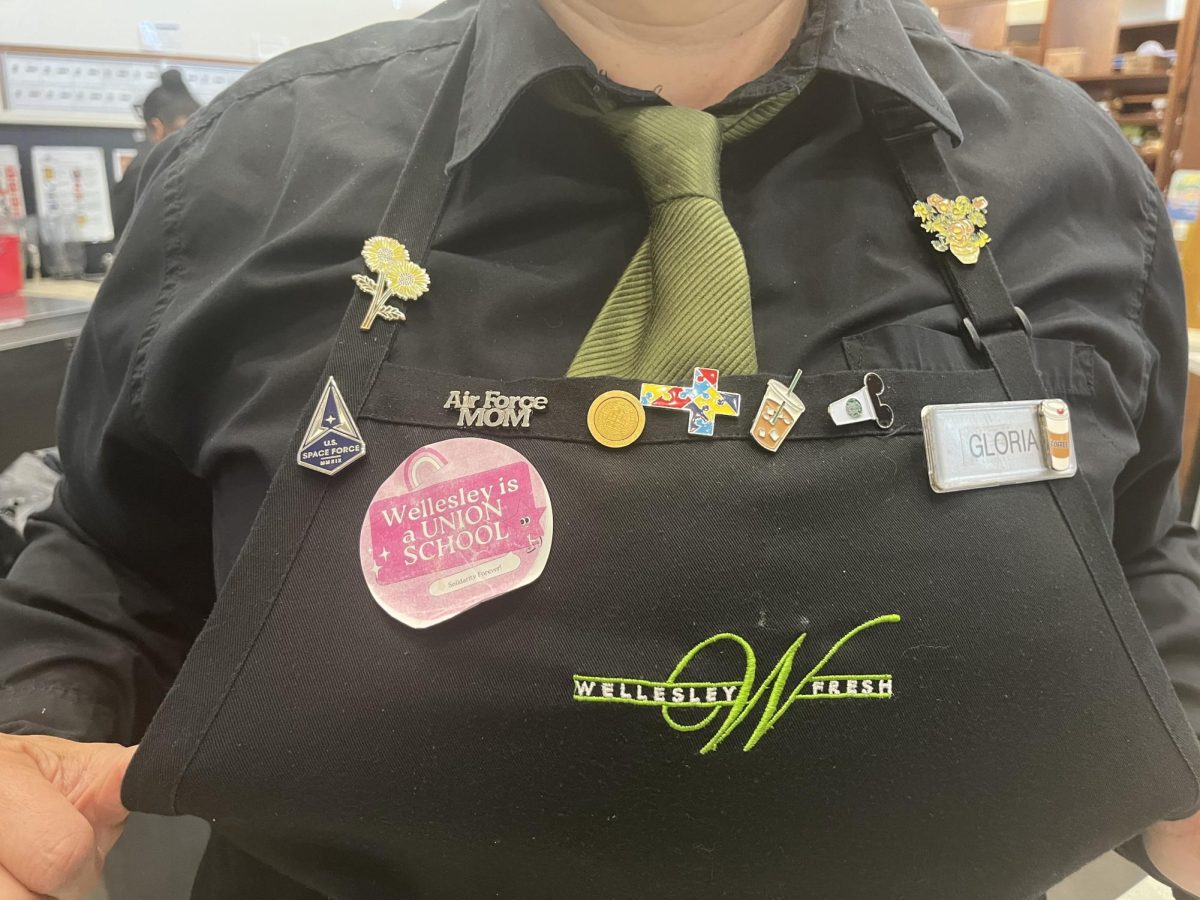On Sept. 9, 2021, Provost Andrew Shennan announced to Academic Council that the 2021-2022 academic year would be the Freedom Project’s last, due to a lack of funding and faculty support. The announcement came as a surprise to Maya Rubin ’22, a former fellow and supporter of the Project.
“It was a surprise. There was not very much transparency about discussion surrounding the shutdown … I’ve been involved in the Freedom Project for all of my time at Wellesley,” she said. “I had no idea that the school was even considering shutting down the Freedom Project until I got an email saying that the decision had been made and it was being announced at Academic Council.”
The Freedom Project was founded in 2012 by Wellesley Sociology Professor Thomas Cushman. Its mission was to promote freedom of speech and intellectual diversity. The Project’s website reads “The Freedom Project offers a unique intellectual space for promoting tolerance, pluralism, intellectual diversity, and freedom of expression within the larger Wellesley community and beyond.”
The Project hosts speakers on topics that are “provocative and contentious,” according to its website, with the goal of exposing its fellows and Wellesley students to perspectives that they may not hear otherwise.
The Project has also been at the heart of controversy with its choice of speakers and funding in past years at Wellesley. On Feb. 2, 2018, a Boston Globe article used the Freedom Project as an example of libertarian interests, specifically the Koch brothers, trying to “tilt the collegiate discourse to the right” at Wellesley because of its “liberal intolerance.” In the wake of the article, Wellesley College President Paula Johnson announced that the Project would be restructured and that the Project’s then-Program Director Thomas Cushman, would be stepping down.
Although there was criticism and outcry from Wellesley alums who were concerned about the intention behind the funding by the Koch foundation, Professor Kathryn Lynch, the director of The Project from 2018-2020, insisted that the criticisms came from a place of misunderstanding.
“I think that some of that comes from a lack of real understanding of the Charles Koch foundation. It’s not the Koch brothers, it’s a separate foundation,” she said. “There are no strings attached to the money. It’s not coming from Charles Koch personally, it’s coming from a foundation that he established, and more than 300 of our peer schools including places like Harvard and MIT have benefitted from the foundation’s generosity.”
Lynch also pointed out that the funding for the Freedom Project was used to support scholars who could be in danger because of their academic pursuits, like Nazan Bedirhanoglu, who is a postdoctoral fellow in Wellesley’s political science department.
“A lot of people didn’t know enough about the academic asylum we provided to scholars at risk, people who had been stripped of their academic freedom,” she said. “I really hope the College can find a way to keep that going, because we take our academic freedom for granted in the United States.”
Rubin was also emphatically against the notion that the funding was for an insidious purpose.
“I think that there are a lot of misconceptions that are floating around about the way that the Freedom Project was funded. The Freedom Project did receive a grant from the Koch brothers, that’s obviously common knowledge,” she said. “But what people don’t know is that that grant was approved by the administration and by President Johnson, and it was a no-strings attached grant.”
She also pointed out that the Kochs had a personal connection to Wellesley, as their mother, Mary Robinson Koch, graduated from Wellesley College in 1929. Rubin also believed that the widespread disdain for the Project was unwarranted.
“I think that there’s a lot of misinformation going around about the Freedom Project. I think it’s become something of a boogeyman on campus,” Rubin said. “I think that people just form an opinion of what the Freedom Project is based on the information that gets passed around and distorted among the students, and then they don’t actually pay attention to what the Freedom Project is actually doing.”
In 2018, Alice Dreger, a bioethicist and former Northwestern professor, was invited to speak at an event titled “When Scientific Pursuits and Social Justice Campaigns Clash, Who Wins and Who Loses?,” speaking about her research in transgender and intersex people, as well as her investigation into the aftermath of the backlash towards J. Michael Bailey’s book “The Man who Would be Queen,” which was criticized by many transgender activists, due to her support for the autogynephilia theory, which proposes that some trans women are actually men who are sexually aroused by having a female body.
The invitation of Dreger was controversial, inciting student petitions and protests including a group that gathered outside Clapp Library where she spoke. Jo Sehon ’19 was one of the students directly involved in the protest. Sehon spoke of their admiration for trans students who showed up to protest.
“[They took] center stage there and put themselves in a position that must have been very uncomfortable in order to say, ‘Hey, I belong here. You need to respect me. And you being here is a threat to my personal safety, and my security and my community,” Sehon said.
Sehon, however, thought that those who supported Dreger were looking down on the protesters.
“When they were looking at us they were seeing us as people who were not invited to this kind of thing and the unfortunate consequences of having a conversation,” they said. “It wasn’t like, ‘Oh, we’re on the same level as them,’ it was like they were looking down on us.”
Esther Jay-Chatham ’19, who frequently posted and spoke out against the project, thought giving Dreger that platform was a provocation directed to students.
“What really felt like kind of a slap in the face when Alice Dreger was brought, not just once, but twice,” she said. “The second time [was] to discuss how fragile we had all been about her having shown up the first time and so I think there was a pervasive sense that dialogue was not being fostered. When people rose to that provocation they were painted as hysterical, as the problem with college campuses.”
Jay-Chatham’s public criticisms of the Project also made her a target. On April 11, 2018, Professor Cushman tweeted a link to a Google search of Jay-Chatham’s name, with her Facebook page as a result on the second page. This led to her being bombarded with hateful messages and comments online. Jay-Chatham reached out to Provost Shennan, who informed her over email that as of April 12, 2018, the tweet was removed, and as of May 4, 2018, there were no other tweets on his account directed towards her. There was no further communication from administration regarding the tweet.
“It was very disruptive to my ability to exist on campus, of course because at [that] moment, in an interracial relationship and I was getting comments about being a ‘race traitor,’” she said. “’People [called] me a “bigoted liberal who hates white people.’ I was getting [this] non-stop on every anonymous platform. It was tremendously upsetting, and it was [due to] me putting my identity forward and saying [that] I, as a Wellesley student want to speak out about this and I don’t want to be intimidated. I was effectively forced to back off of social media a great deal.”
Some students who are a part of the project, despite admitting that it is not perfect, believe that the Freedom Project is a unique forum for hearing different perspectives. Wendy ’23* thought that the Freedom Project was a space to expose herself to different views.
“I feel like it’s one of the few places on campus where people can have different opinions without feeling that they’re going to be attacked or shut down for having a different opinion,” she said. “I think college should be a place where you allow a diverse opinion whether you agree or don’t agree with it.”
According to Phoebe Amory ’20, however, such debates between different perspectives should be had on equal standing, rather than putting certain opinions on a pedestal without room for criticism.
“There has to be the same amount of power between the people who have differing opinions,” Amory said. “So if the Freedom Project’s whole thing was to bring people with differing opinions to campus, they have to then give the opposite opinion, so that there would actually be an open discourse.”
Sehon also thought that the Project and its speakers should have been more receptive to criticism.
“It seems to me that the goal of ‘freedom of speech’ is sort of a cover for the real goal of putting right wing opinions on a pedestal where they can’t be criticized rationally,” they explained. “But the Freedom Project isn’t about listening. It’s not about critical thinking.”
Jay-Chatham thought that the spirit of open discourse should be carried on by Wellesley students on their own, without outside interference.
“I am so very hopeful for Wellesley’s future and the future of its smart opinionated students of all stripes and all identities and their ability to hold conversations themselves without administrators telling them what outside voices are worth listening to,” she said. “Your voices are worth listening to. Wellesley voices are worth listening to, and elevating, and honoring.”
*Name changed to protect student’s privacy.






